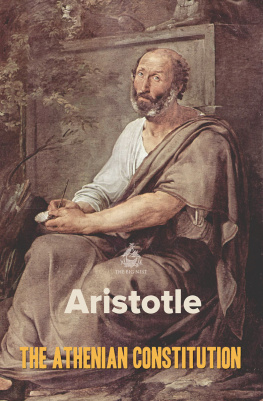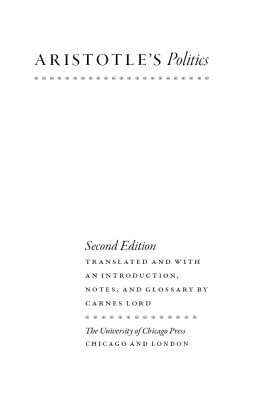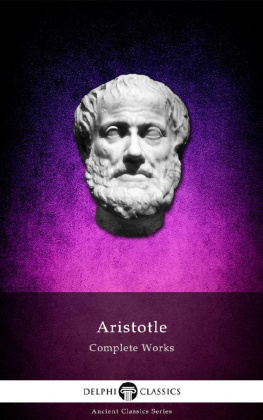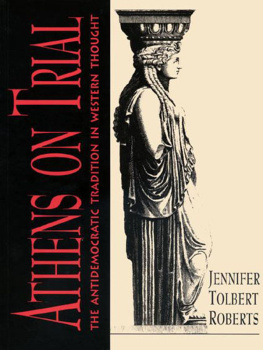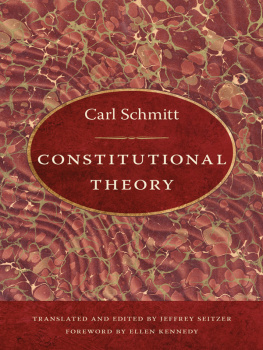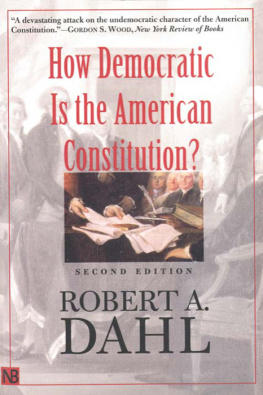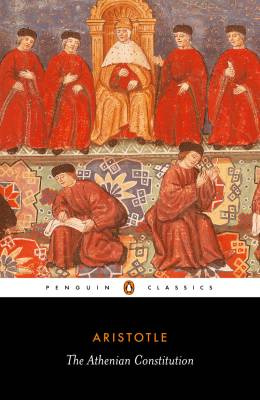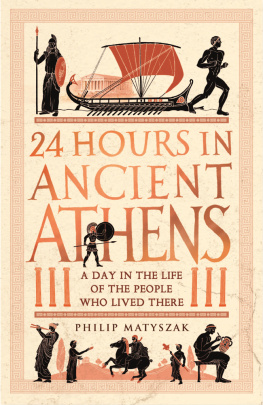Aristotle - The Athenian Constitution
Here you can read online Aristotle - The Athenian Constitution full text of the book (entire story) in english for free. Download pdf and epub, get meaning, cover and reviews about this ebook. City: Athens (Greece);Greece;Athens, year: 2016, publisher: Interactive Media;The Big Nest, genre: Detective and thriller. Description of the work, (preface) as well as reviews are available. Best literature library LitArk.com created for fans of good reading and offers a wide selection of genres:
Romance novel
Science fiction
Adventure
Detective
Science
History
Home and family
Prose
Art
Politics
Computer
Non-fiction
Religion
Business
Children
Humor
Choose a favorite category and find really read worthwhile books. Enjoy immersion in the world of imagination, feel the emotions of the characters or learn something new for yourself, make an fascinating discovery.
- Book:The Athenian Constitution
- Author:
- Publisher:Interactive Media;The Big Nest
- Genre:
- Year:2016
- City:Athens (Greece);Greece;Athens
- Rating:3 / 5
- Favourites:Add to favourites
- Your mark:
- 60
- 1
- 2
- 3
- 4
- 5
The Athenian Constitution: summary, description and annotation
We offer to read an annotation, description, summary or preface (depends on what the author of the book "The Athenian Constitution" wrote himself). If you haven't found the necessary information about the book — write in the comments, we will try to find it.
The Athenian Constitution — read online for free the complete book (whole text) full work
Below is the text of the book, divided by pages. System saving the place of the last page read, allows you to conveniently read the book "The Athenian Constitution" online for free, without having to search again every time where you left off. Put a bookmark, and you can go to the page where you finished reading at any time.
Font size:
Interval:
Bookmark:
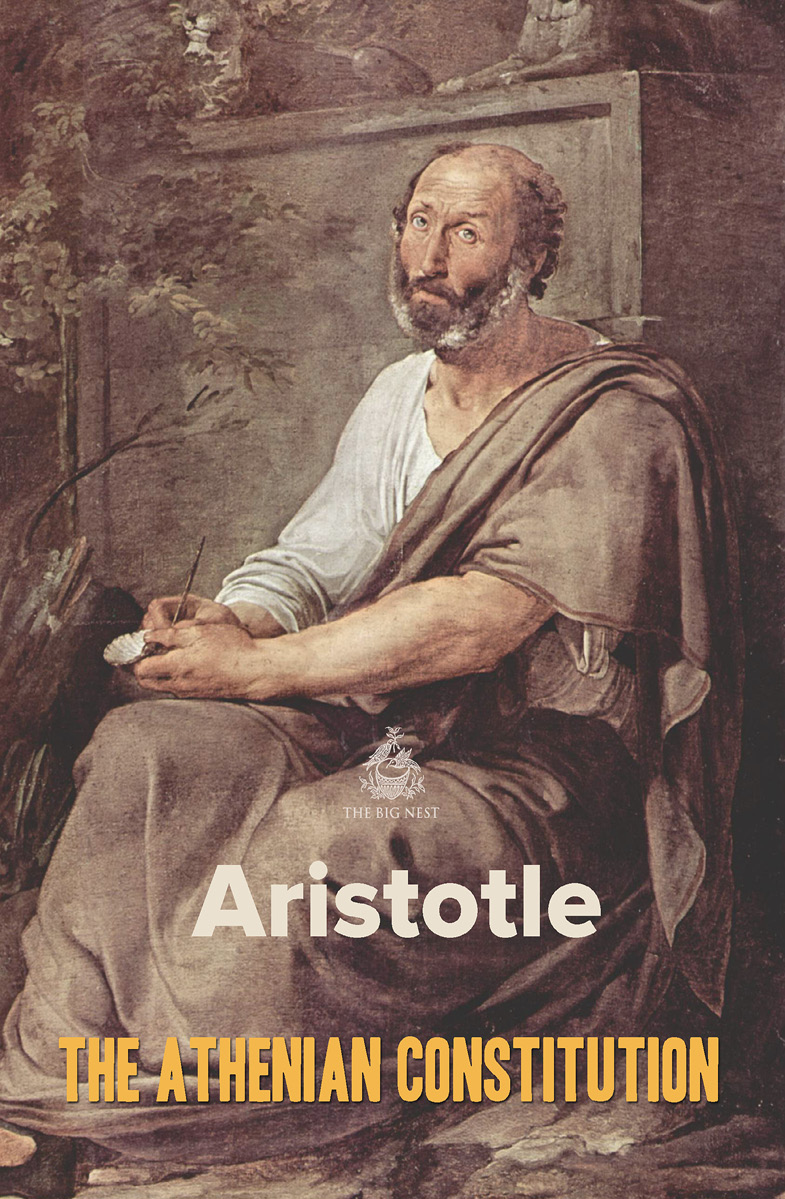
Aristotle

Aristotle
The Athenian Constitution



THE BIG NEST
LONDON NEW YORK TORONTO SAO PAULO MOSCOW
PARIS MADRID BERLIN ROME MEXICO CITY MUMBAI SEOUL DOHA
TOKYO SYDNEY CAPE TOWN AUCKLAND BEIJING
New Edition
Published by The Big Nest
www.thebignest.co.uk
This Edition first published in 2016
Copyright 2016 The Big Nest
Images and Illustrations 2016 Stocklibrary.org
All Rights Reserved.
ISBN: 9781911495017
Contents
Section 1
Part 1
...[They were tried] by a court empanelled from among the noble families, and sworn upon the sacrifices. The part of accuser was taken by Myron. They were found guilty of the sacrilege, and their bodies were cast out of their graves and their race banished for evermore. In view of this expiation, Epimenides the Cretan performed a purification of the city.
Part 2
After this event there was contention for a long time between the upper classes and the populace. Not only was the constitution at this time oligarchical in every respect, but the poorer classes, men, women, and children, were the serfs of the rich. They were known as Pelatae and also as Hectemori, because they cultivated the lands of the rich at the rent thus indicated. The whole country was in the hands of a few persons, and if the tenants failed to pay their rent they were liable to be haled into slavery, and their children with them. All loans secured upon the debtors person, a custom which prevailed until the time of Solon, who was the first to appear as the champion of the people. But the hardest and bitterest part of the constitution in the eyes of the masses was their state of serfdom. Not but what they were also discontented with every other feature of their lot; for, to speak generally, they had no part nor share in anything.
Part 3
Now the ancient constitution, as it existed before the time of Draco, was organized as follows. The magistrates were elected according to qualifications of birth and wealth. At first they governed for life, but subsequently for terms of ten years. The first magistrates, both in date and in importance, were the King, the Polemarch, and the Archon. The earliest of these offices was that of the King, which existed from ancestral antiquity. To this was added, secondly, the office of Polemarch, on account of some of the kings proving feeble in war; for it was on this account that Ion was invited to accept the post on an occasion of pressing need. The last of the three offices was that of the Archon, which most authorities state to have come into existence in the time of Medon. Others assign it to the time of Acastus, and adduce as proof the fact that the nine Archons swear to execute their oaths as in the days of Acastus, which seems to suggest that it was in his time that the descendants of Codrus retired from the kingship in return for the prerogatives conferred upon the Archon. Whichever way it may be, the difference in date is small; but that it was the last of these magistracies to be created is shown by the fact that the Archon has no part in the ancestral sacrifices, as the King and the Polemarch have, but exclusively in those of later origin. So it is only at a comparatively late date that the office of Archon has become of great importance, through the dignity conferred by these later additions. The Thesmothetae were many years afterwards, when these offices had already become annual, with the object that they might publicly record all legal decisions, and act as guardians of them with a view to determining the issues between litigants. Accordingly their office, alone of those which have been mentioned, was never of more than annual duration.
Such, then, is the relative chronological precedence of these offices. At that time the nine Archons did not all live together. The King occupied the building now known as the Boculium, near the Prytaneum, as may be seen from the fact that even to the present day the marriage of the Kings wife to Dionysus takes place there. The Archon lived in the Prytaneum, the Polemarch in the Epilyceum. The latter building was formerly called the Polemarcheum, but after Epilycus, during his term of office as Polemarch, had rebuilt it and fitted it up, it was called the Epilyceum. The Thesmothetae occupied the Thesmotheteum. In the time of Solon, however, they all came together into the Thesmotheteum. They had power to decide cases finally on their own authority, not, as now, merely to hold a preliminary hearing. Such then was the arrangement of the magistracies. The Council of Areopagus had as its constitutionally assigned duty the protection of the laws; but in point of fact it administered the greater and most important part of the government of the state, and inflicted personal punishments and fines summarily upon all who misbehaved themselves. This was the natural consequence of the facts that the Archons were elected under qualifications of birth and wealth, and that the Areopagus was composed of those who had served as Archons; for which latter reason the membership of the Areopagus is the only office which has continued to be a life-magistracy to the present day.
Part 4
Such was, in outline, the first constitution, but not very long after the events above recorded, in the archonship of Aristaichmus, Draco enacted his ordinances. Now his constitution had the following form. The franchise was given to all who could furnish themselves with a military equipment. The nine Archons and the Treasurers were elected by this body from persons possessing an unencumbered property of not less than ten minas, the less important officials from those who could furnish themselves with a military equipment, and the generals [Strategi] and commanders of the cavalry [Hipparchi] from those who could show an unencumbered property of not less than a hundred minas, and had children born in lawful wedlock over ten years of age. These officers were required to hold to bail the Prytanes, the Strategi, and the Hipparchi of the preceding year until their accounts had been audited, taking four securities of the same class as that to which the Strategi and the Hipparchi belonged. There was also to be a Council, consisting of four hundred and one members, elected by lot from among those who possessed the franchise. Both for this and for the other magistracies the lot was cast among those who were over thirty years of age; and no one might hold office twice until every one else had had his turn, after which they were to cast the lot afresh. If any member of the Council failed to attend when there was a sitting of the Council or of the Assembly, he paid a fine, to the amount of three drachmas if he was a Pentacosiomedimnus, two if he was a Knight, and One if he was a Zeugites. The Council of Areopagus was guardian of the laws, and kept watch over the magistrates to see that they executed their offices in accordance with the laws. Any person who felt himself wronged might lay an information before the Council of Areopagus, on declaring what law was broken by the wrong done to him. But, as has been said before, loans were secured upon the persons of the debtors, and the land was in the hands of a few.
Font size:
Interval:
Bookmark:
Similar books «The Athenian Constitution»
Look at similar books to The Athenian Constitution. We have selected literature similar in name and meaning in the hope of providing readers with more options to find new, interesting, not yet read works.
Discussion, reviews of the book The Athenian Constitution and just readers' own opinions. Leave your comments, write what you think about the work, its meaning or the main characters. Specify what exactly you liked and what you didn't like, and why you think so.

